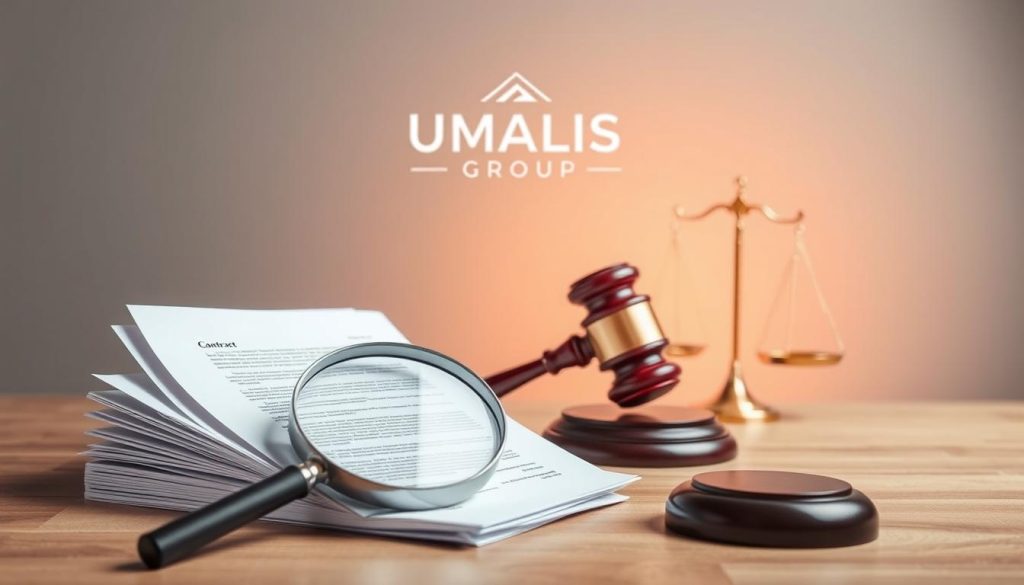Embarking on a career as an independent professional in France can be both exhilarating and daunting. As you start your journey, it’s crucial to understand that navigating the complex legal landscape is not just a formality, but a necessity for long-term stability and success.
Among the myriad considerations for entrepreneurs, legal aspects stand out as particularly critical. From choosing the right business structure to complying with local laws and ensuring proper contracts are in place, every decision has significant implications.
Understanding these legal considerations is essential to avoid potential pitfalls that could jeopardize your professional practice and personal assets. By proactively addressing these aspects, you can create a foundation for sustainable growth and protection.
Table of Contents
Key Takeaways
- Understanding the legal landscape is crucial for independent professionals in France.
- Proper business structuring is essential for long-term stability.
- Compliance with local laws is vital to avoid legal complications.
- Having appropriate contracts in place protects your professional practice.
- Proactive legal planning can prevent common legal issues.
The Legal Foundation for Independent Professionals
Independent professionals must prioritize building a robust legal foundation to protect their business and personal assets. This foundation is crucial in navigating the complexities of the legal system in France.
Understanding Your Professional Status in France
The French legal system categorizes independent professionals into specific classifications that determine their tax obligations, social security contributions, and legal protections. Understanding whether you qualify as an « auto-entrepreneur, » « profession libérale, » or another professional category is the first crucial step. Each status carries different registration requirements, liability considerations, and compliance obligations that must be addressed before beginning operations. For instance, the classification will influence your registration process with the relevant authorities, such as the Centre de Formalités des Entreprises (CFE) and URSSAF.
As stated by a legal expert, « Understanding your professional status is not just about registration; it’s about ensuring you have the right legal protections and comply with all necessary obligations from the start. »
The Importance of Legal Compliance from Day One
Legal compliance from day one is not merely a formality but a critical protection mechanism that safeguards your professional practice and personal assets. Non-compliance with initial registration requirements can result in significant penalties, retroactive tax assessments, and potential business closure. The French administration requires specific documentation and registrations with multiple agencies. Establishing proper legal foundations early allows independent professionals to focus on growing their business rather than resolving preventable legal complications. Moreover, securing professional liability insurance (assurance responsabilité civile professionnelle) is often mandatory and should be done before beginning client work.
Key considerations for legal compliance include:
- Registering with the appropriate agencies, such as CFE and URSSAF
- Understanding and fulfilling tax obligations and social security contributions
- Securing necessary insurance coverage, such as professional liability insurance
Choosing the Right Business Structure

The business structure you select as an independent professional in France can significantly impact your liability, taxation, and overall business operations. This decision is one of the most critical considerations you’ll make, with long-term implications for your practice.
Sole Proprietorship vs. Limited Liability Options
In France, independent professionals can choose from several business structures, including Entreprise Individuelle (EI), Entreprise Individuelle à Responsabilité Limitée (EIRL), and various forms of companies such as EURL or SASU. Sole proprietorship options (EI) offer simplicity and lower administrative burdens but provide limited separation between personal and business assets, potentially exposing personal assets to business liabilities.
Limited liability structures like EIRL, EURL, or SASU create a legal separation between personal and business assets, offering greater personal protection but requiring more complex accounting and administrative procedures. For example, EIRL allows you to separate your personal assets from your business assets while maintaining a simple management structure.
Tax Implications of Different Business Structures
Each business structure carries different tax implications, with some qualifying for the micro-entrepreneur regime with simplified taxation and others subject to corporate taxation. The choice of business structure also affects how social security contributions are calculated and paid, which can significantly impact your net income. For instance, the micro-entrepreneur regime simplifies taxation for small businesses, while corporate taxation applies to more complex business structures.
Consulting with both a legal advisor and accountant before finalizing your business structure can provide valuable insights into the long-term implications of each option. They can help you consider not only current circumstances but also future growth plans, potential partnerships, and investment opportunities.
Essential Legal Considerations for Independent Professionals

The legal considerations for independent professionals are multifaceted and require careful attention. As the foundation of a successful independent practice, understanding these legal aspects is crucial for navigating the complexities of the profession.
Independent professionals must be aware of several key legal areas to operate effectively and protect themselves from potential disputes and liabilities. This includes understanding contract law, liability protection, and legal documentation requirements.
Contract Law Fundamentals
Contract law forms the backbone of client relationships for independent professionals. Enforceable agreements require clear terms regarding scope of work, payment conditions, intellectual property rights, and termination provisions. In France, contracts must contain certain mandatory elements to be legally binding, including precise identification of parties, detailed description of services, and specific payment terms.
The concept of consideration is a fundamental aspect of contract law, particularly in common law jurisdictions. It refers to the value exchanged between parties, which can be in the form of goods, money, or an act. Understanding this concept is essential for drafting effective contracts.
Liability Protection Strategies
Liability protection is critical for independent professionals to safeguard their personal assets from professional risks. This can be achieved through appropriate insurance coverage, contractual limitations of liability, and proper business structure selection. Professional indemnity insurance (assurance responsabilité civile professionnelle) is particularly important for consultants and advisors whose advice could result in financial losses for clients.
Understanding the distinction between contractual obligations (obligations de moyens) and performance obligations (obligations de résultat) is also crucial, as it significantly affects liability exposure.
Legal Documentation Requirements
Legal documentation requirements extend beyond client contracts to include proper record-keeping of business expenses, income, client communications, and work deliverables. Independent professionals must maintain specific business records for varying periods as required by French law, with some documents needing preservation for up to 10 years.
Implementing proper data protection measures for client information is both a legal requirement and a professional responsibility that builds trust and credibility.
Tax Compliance and Financial Regulations

Tax compliance represents a critical aspect of being an independent professional in France, with various regulations to consider. Ensuring accurate tax filing and documentation from the very first year is crucial, as missteps can lead to significant penalties, audits, or even legal actions in the future.
Investing in a competent accountant or tax professional from the outset can be a wise decision to prevent such potential issues. Independent professionals must understand their specific tax regime, whether it’s the micro-entrepreneur system with simplified taxation or the régime réel with more comprehensive accounting requirements.
French Tax Filing Requirements for Independents
French tax filing deadlines differ from those in other countries, with specific declaration periods that independent professionals must carefully track to avoid penalties. VAT (TVA) registration and compliance becomes mandatory once certain revenue thresholds are crossed, requiring additional accounting procedures and regular declarations.
- Tax compliance is one of the most significant legal considerations for independent professionals in France.
- Independent professionals must understand their specific tax regime.
- French tax filing deadlines differ from those in other countries.
Accounting and Record-Keeping Legal Obligations
Record-keeping obligations include maintaining organized documentation of all business transactions, expenses, and income for a minimum period specified by French tax authorities. Digital invoicing requirements have specific elements mandated by French law, including mandatory information that must appear on every invoice issued.
- Record-keeping is crucial for independent professionals.
- Digital invoicing has specific requirements under French law.
- Independent professionals must distinguish between deductible and non-deductible business expenses.
Failure to comply with tax and financial regulations can result in significant penalties, interest charges, and potential audits that can disrupt business operations. Working with a French accountant familiar with independent professional taxation can provide valuable guidance and help avoid common compliance pitfalls.
Intellectual Property Protection

For independent professionals, intellectual property protection is not just a legal necessity but a business imperative. Protecting your intellectual property (IP) is crucial for maintaining a competitive edge, preventing unauthorized use of your ideas, and preserving the value of your business.
Safeguarding Your Creative and Business Assets
Intellectual property protection is vital for independent professionals who create original works, develop proprietary methodologies, or establish distinctive brand identities. In France, IP rights are governed by the Code de la Propriété Intellectuelle, which provides specific protections for various forms of creative and business assets.
Key Considerations:
– Intellectual property protection is crucial for independent professionals.
– TheCode de la Propriété Intellectuellegoverns IP rights in France.
–Copyrightoffers stronger protection in France than in some other countries.
– Proper documentation is essential to establish evidence of authorship.
Navigating Copyright, Trademark, and Patent Laws
Understanding the nuances of copyright, trademark, and patent laws is essential for effective IP protection. Trademark protection requires registration with the Institut National de la Propriété Industrielle (INPI), while patent protection involves specific filing procedures.
Strategic IP management can create additional revenue streams and enhance business value. It is advisable to consult with an intellectual property attorney to identify and protect your IP assets through proper registrations, contracts, and confidentiality agreements.
Client Agreements and Contract Management
Effective client agreements are crucial for independent professionals to establish clear expectations and protect their interests. These agreements serve as the cornerstone of professional relationships, outlining the terms and conditions of service for both parties.
As emphasized by legal experts, « A well-drafted contract is not just a formality; it’s a safeguard that ensures clarity and mutual understanding between the independent professional and the client. » Such clarity is essential in preventing misunderstandings and disputes.
Creating Legally Sound Client Contracts
Creating legally sound client contracts requires careful consideration of several key elements. These include precise scope definition, payment terms, intellectual property rights, confidentiality provisions, and dispute resolution mechanisms. Under French law, contracts must adhere to specific requirements regarding formation and enforceability.
Key Considerations for Client Contracts:
- Clearly define the scope of work and deliverables
- Establish payment terms, including schedules and late payment penalties
- Address intellectual property rights and confidentiality
- Include dispute resolution mechanisms
- Specify contract termination provisions
For instance, consideration is a critical concept in contract law, representing the value exchanged between parties. For example, if an independent professional agrees to provide services worth $10,000, the client’s payment is the consideration for the services rendered.
Managing Contract Disputes and Breaches
Managing contract disputes effectively is crucial for independent professionals. This involves understanding both preventative measures and resolution options, including negotiation, mediation, and litigation. French law provides specific remedies for contract breaches, such as performance enforcement (exécution forcée) and damages (dommages-intérêts).
Strategies for Managing Disputes:
- Establish a systematic approach to contract management
- Regularly review and update standard contract terms
- Document all contract changes and communications
- Monitor deliverable deadlines and payment schedules
By understanding the statute of limitations for contract claims in France, typically five years, independent professionals can better manage their contracts and protect their rights.
Data Protection and Privacy Compliance
Navigating the complexities of GDPR is essential for independent professionals to maintain legal compliance and protect their clients’ data.

Understanding GDPR Requirements in France
Data protection and privacy compliance have become critical legal considerations for independent professionals in France, particularly since the implementation of the General Data Protection Regulation (GDPR).
- Independent professionals are considered data controllers under GDPR when they collect, store, or process personal data of clients, prospects, or other individuals, creating specific legal obligations.
- The French data protection authority, Commission Nationale de l’Informatique et des Libertés (CNIL), provides additional guidance and enforcement beyond the baseline GDPR requirements.
- Understanding the legal basis for data processing is essential, with independent professionals needing to identify whether they’re relying on consent, contractual necessity, legitimate interest, or another legal basis.
Implementing Compliant Data Management Practices
To ensure compliance, independent professionals must implement appropriate technical and organizational measures to protect personal data.
- Client contracts should include specific clauses addressing data protection, including data processing purposes, retention periods, and data subject rights.
- Implementing compliant data management practices requires developing specific policies and procedures, including privacy notices, data processing records, and data retention schedules.
- Data breach notification requirements impose strict timelines for reporting incidents to authorities and affected individuals when certain thresholds are met.
- Regular data protection audits and updates to privacy practices are necessary to maintain compliance as both regulations and business operations evolve.
Non-compliance with data protection regulations can result in significant penalties, with GDPR fines reaching up to €20 million or 4% of annual global turnover, whichever is higher.
Conclusion: Building a Legally Sound Independent Practice
Establishing a legally sound independent practice in France demands a comprehensive approach to legal compliance and risk management. As an independent professional, you must address key legal considerations to create a stable foundation for sustainable business growth.
By prioritizing legal compliance from the outset, you can avoid potential complications and liabilities. This includes establishing proper business structures, developing relationships with qualified legal advisors, and conducting regular legal audits to identify emerging compliance issues.
As your independent practice grows, it’s essential to balance legal protection with operational flexibility. This enables you to maintain a competitive and responsive business while minimizing the risk of liability and contract breaches. By proactively addressing legal considerations, you can focus on delivering exceptional service and driving long-term success.
FAQ
What are the key laws and regulations that I need to be aware of as an independent professional in France?
As an independent professional in France, you need to be aware of various laws and regulations, including those related to data protection, intellectual property, and tax compliance. You must comply with the General Data Protection Regulation (GDPR) and French tax filing requirements.
How do I protect my intellectual property as an independent professional?
To protect your intellectual property, you should understand copyright, trademark, and patent laws. Registering your intellectual property and using non-disclosure agreements can help safeguard your creative and business assets.
What are the contract law fundamentals that I should know as an independent professional?
As an independent professional, you should understand the basics of contract law, including the essential elements of a valid contract, such as offer, acceptance, and consideration. You should also be aware of the terms and conditions that should be included in a client contract.
How can I manage contract disputes and breaches as an independent professional?
To manage contract disputes and breaches, you should have a clear understanding of your contractual obligations and the dispute resolution processes outlined in your contract. You should also maintain accurate records and seek professional advice when needed.
What are the data protection requirements that I need to comply with as an independent professional in France?
As an independent professional in France, you need to comply with the GDPR and implement compliant data management practices. This includes ensuring the secure storage and processing of personal data, obtaining necessary consents, and respecting individuals’ rights.
How do I choose the right business structure for my independent practice?
To choose the right business structure, you should consider factors such as liability protection, tax implications, and your business goals. You may want to consult with a professional advisor to determine whether a sole proprietorship or a limited liability company is most suitable for your needs.





